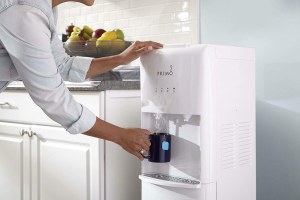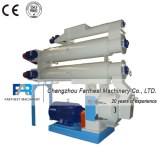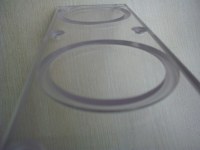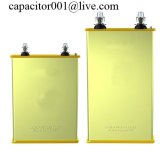Maintaining your water filter system in Singapore is essential to ensure that it continues to function effectively, providing your household with clean and safe drinking water. Regular maintenance not only extends the lifespan of your water filter system but also ensures that it consistently removes contaminants, delivering the best possible water quality. Here are some practical maintenance tips to help you keep your water filter system in top condition.
1. Regularly Replace Filter Cartridges
One of the most crucial aspects of maintaining a water filter system is regularly replacing the filter cartridges. Over time, the filters can become clogged with debris, dirt, and contaminants, reducing their effectiveness. In Singapore, where tap water quality can vary, it's essential to follow the manufacturer's recommendations on when to replace the filters. Typically, cartridges should be replaced every 6 to 12 months, depending on usage and the type of filter. Some advanced systems have indicators that signal when a filter needs changing, making it easier to stay on top of this task.
2. Clean the Filter Housing
The filter housing, which encases the filter cartridge, can accumulate dirt and sediment over time. It's important to clean this housing regularly to prevent any buildup that could contaminate the water or reduce the system's efficiency. To clean the housing, first, turn off the water supply to the filter. Carefully remove the filter cartridge, then use warm, soapy water to clean the inside of the housing. Rinse thoroughly to remove any soap residue before reassembling the unit.
3. Check for Leaks
Leaks can develop in water filter systems, especially around the connections and joints. Regularly inspect your system for any signs of leaks, such as water pooling around the base of the unit or dampness on the surrounding surfaces. If you notice a leak, check the seals and O-rings for wear or damage. In many cases, replacing a worn O-ring or tightening a loose connection can resolve the issue. Addressing leaks promptly helps to maintain water pressure and ensures that the system operates efficiently.
4. Sanitize the System
Over time, bacteria and other microorganisms can grow inside the water filter system, particularly if it's not used regularly. To prevent this, it's a good idea to sanitize the system periodically. This process usually involves using a food-grade sanitizer or a diluted bleach solution. Follow the manufacturer's instructions carefully when sanitizing your system, and make sure to flush the system thoroughly afterward to remove any residual chemicals. Regular sanitization keeps your water filter system hygienic and safe.
5. Monitor Water Pressure
Water pressure can affect the performance of your water filter system. If the pressure is too low, it might indicate that the filter is clogged and needs replacing. Conversely, if the pressure is too high, it could cause damage to the system's components. Use a pressure gauge to monitor the water pressure regularly. The ideal pressure range will depend on your specific system, but it's generally between 40 to 60 psi (pounds per square inch). If you notice any significant changes in pressure, it may be time to service the system or replace components.
6. Keep an Eye on Water Quality
Even with regular maintenance, it's essential to monitor the quality of the water your system produces. If you notice any changes in taste, odor, or appearance, it could be a sign that the filter is no longer working effectively. This could be due to a clogged filter, the presence of bacteria, or other issues within the system. Regularly testing your water using a home test kit or sending a sample to a lab can help you identify any problems early on.
7. Follow Manufacturer's Guidelines
Every water filter system is different, and it's crucial to follow the manufacturer's guidelines for maintenance. This includes adhering to the recommended schedule for filter replacement, cleaning procedures, and any specific instructions related to your system's model. By following these guidelines, you ensure that your system operates as intended and continues to provide high-quality water.
8. Schedule Professional Servicing
While regular DIY maintenance is vital, it's also a good idea to have your water filter system professionally serviced once a year. A professional technician can inspect the system thoroughly, identify any potential issues, and perform more complex maintenance tasks that may be beyond your capabilities. This annual check-up helps to prolong the life of your system and ensures that it continues to operate at peak efficiency.
Conclusion
Proper maintenance of your water filter system in Singapore is key to ensuring a consistent supply of clean, safe drinking water. By following these maintenance tips—replacing filter cartridges regularly, cleaning the housing, checking for leaks, sanitizing the system, monitoring water pressure, and keeping an eye on water quality—you can extend the lifespan of your system and maintain its effectiveness. Don't forget to follow the manufacturer's guidelines and schedule professional servicing to keep your water filter system running smoothly.
Location : 7030 Ang Mo Kio Avenue 5, #03-55 Singapore 569880, 569880 Ang Mo Kio Avenue,
Contact : Happie HappieSg, 88843083








